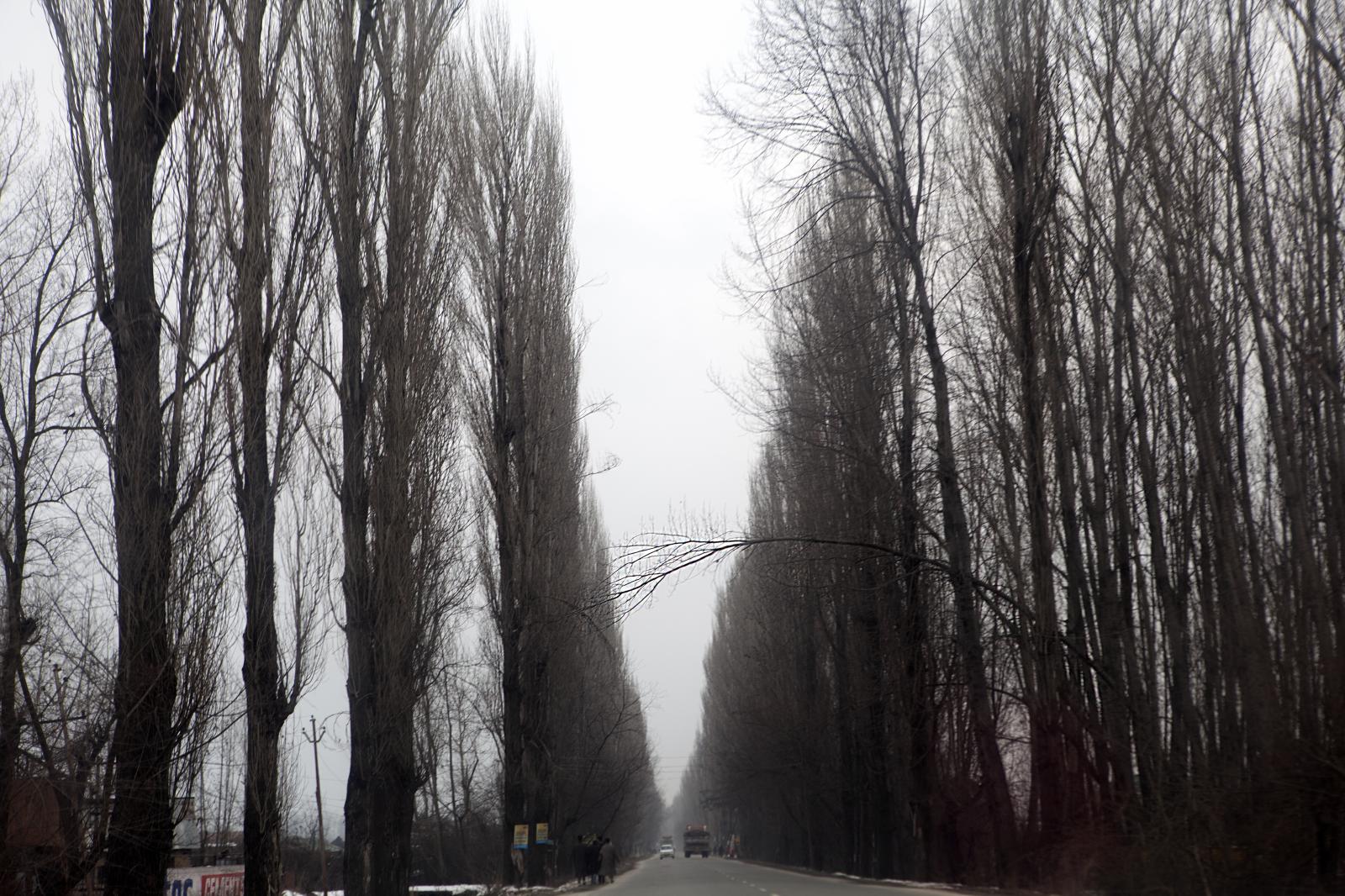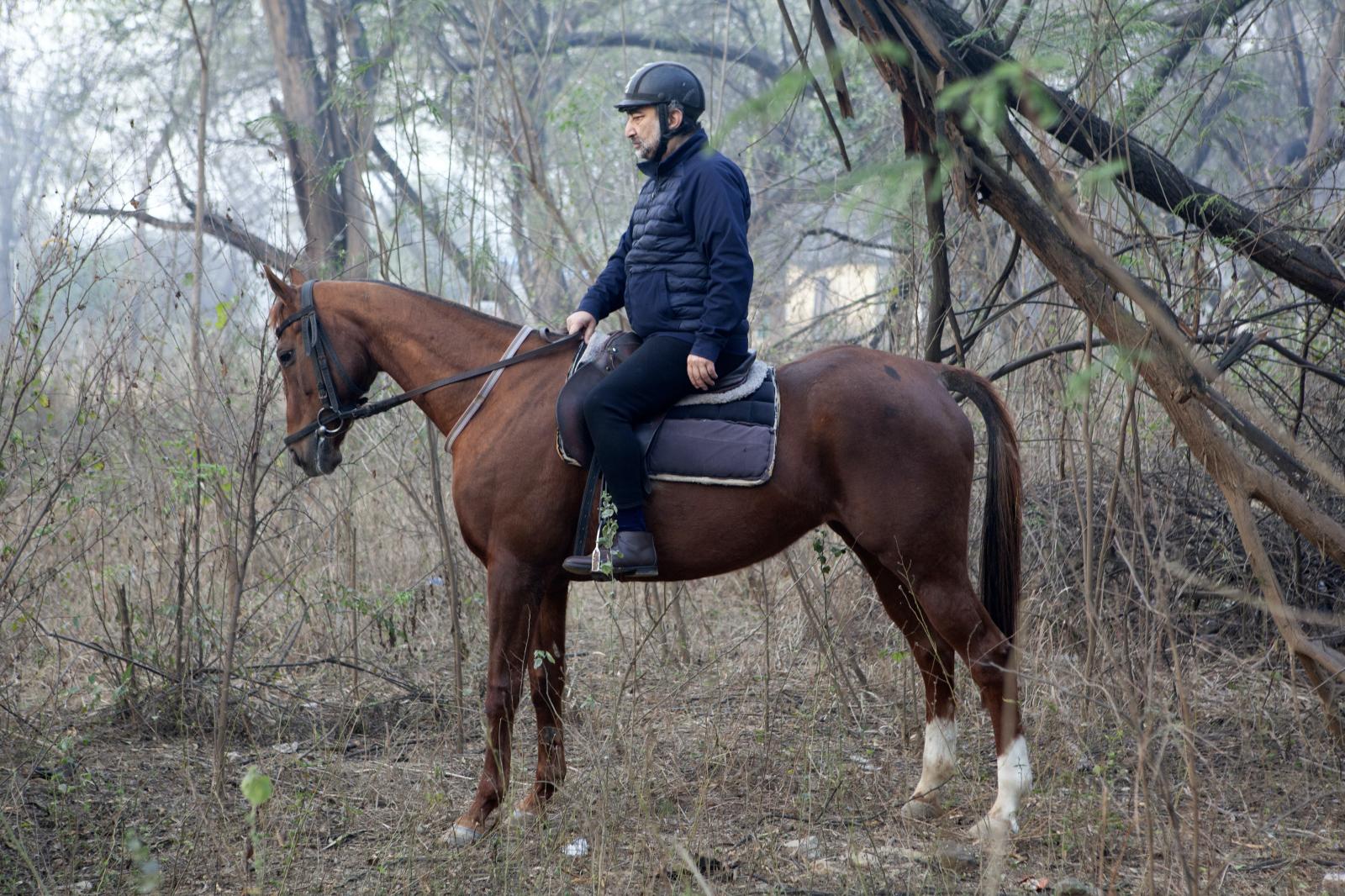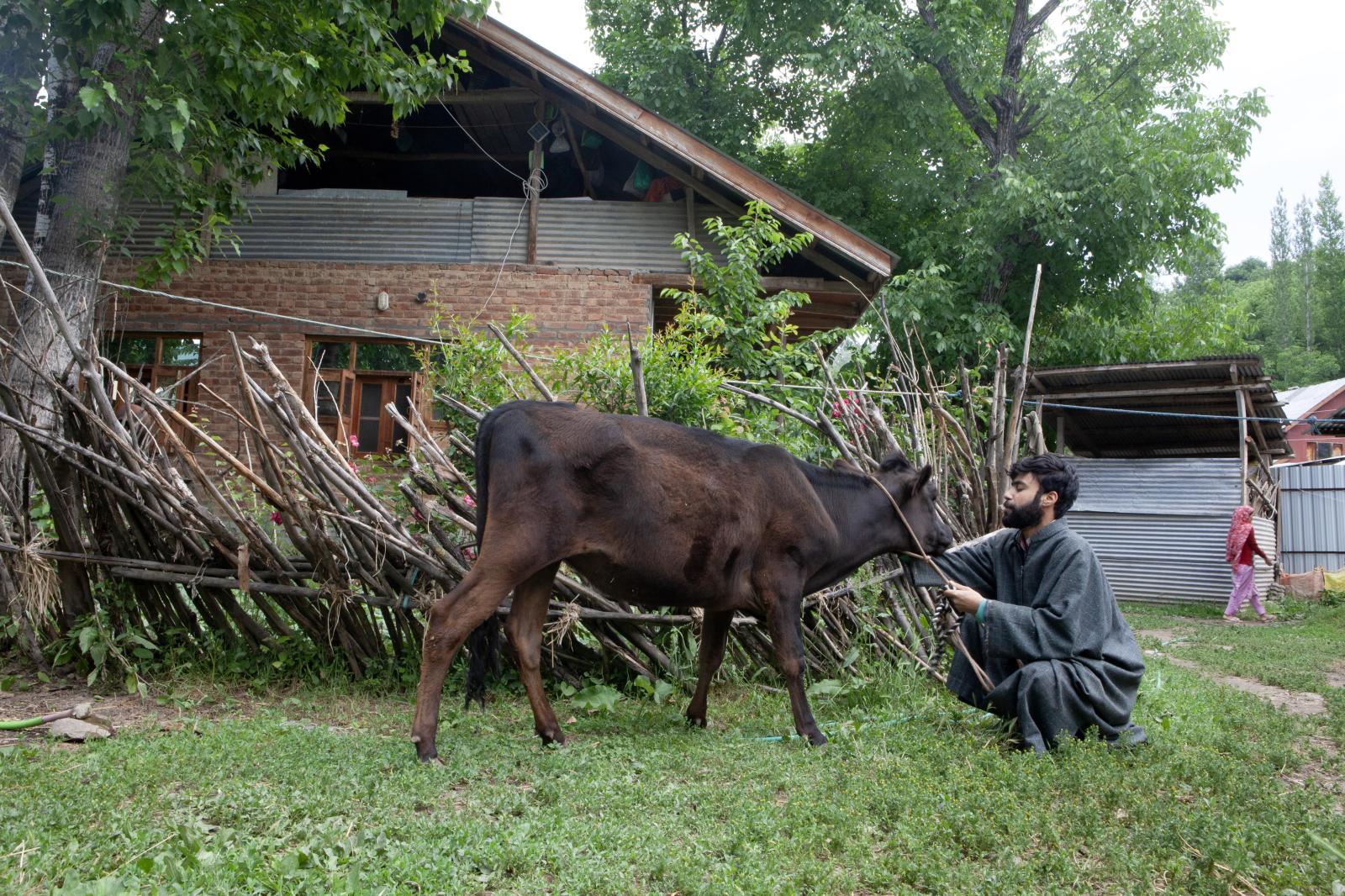In 2024, I set out to document the Kashmiri Pandits, a community whose centuries-long heritage in the Kashmir Valley was suddenly erased by the wave of Islamist militancy in the late 1980s and early 1990s. The Pandits, renowned for their intellectual traditions and spiritual depth, became targets in their own homeland. As Kashmir’s Islamist militants demanded the establishment of an Islamic state under sharia law, the Pandits, who had resisted conversion for centuries, faced death or exile. Thousands fled their ancestral homes in the state of Kashmir, becoming refugees in their own country, across India.
As I began this project, traveling through India—from Mumbai to Jammu, Bangalore to Delhi—I felt a profound connection to the people I was documenting. There were many similarities between the Iranians and the Pandits, and in many ways, I was trying to heal my own wounds of living in self-exile. They were like mirrors to me, reflecting a deep, unspoken question: Should I return to my homeland, or stay outside? Working with the Pandits was a reminder of what my future could possibly look like—a life outside my homeland, disconnected yet clinging to the roots of culture and memory.
The exile of the Pandits reminded me of the deep connections between Kashmir and Iran. Kashmir was once referred to as "Iran-e-Sagheer," or "Little Iran," and this was no mere coincidence. The history of cultural exchange between the two regions dates back to the pre-Islamic era, during the Gathic and Vedic periods. Persian influences, both linguistic and cultural, have left a lasting imprint on Kashmiri society. It’s ironic how the same Islam that forcibly converted Iranians made its way to Kashmir in 1372 AD through an Iranian Muslim man Shaah e Hamedan. The spread of Islam later led to the displacement of the Pandits from their homeland. This historical intersection finds an odd parallel in Ayatollah Khomeini’s role in the Iranian Islamic Revolution in 1979—a man of Kashmiri origin who, centuries later, would contribute to a wave of displacement that forced many Iranians to leave their homeland.
Through my project, Selective $ympathy, I aim to strip away the political and commercial narratives that have distorted the Pandits’ tragedy. Their suffering has often been reduced to a tool for promoting certain agendas, while the real human cost of their displacement is lost. The dollar symbol in the title speaks to the commercialization of their trauma—how their story has been monetized and manipulated to fit a particular narrative. Selective empathy is applied, often depending on who benefits from their suffering.
Selective $ympathy is not just about documenting a displaced community. It is a challenge to the viewer to look beyond the obvious, to reflect on how easily we categorize and assign value to suffering. It asks us to examine our own biases—our own selective empathy—and to understand that the human story is far more complex than we allow ourselves to see. Through my lens, I hope to foster a deeper understanding of the shared human experience, a connection that transcends borders, religions, and politics.
I have faced criticism and accusation as an Iranian "Muslim" photographing a Hindu community. Yet, this has only strengthened my resolve. Like the Pandits, I, too, live in self-exile, far from a homeland that feels distant yet ever-present in my heart. My work with the Pandits, a community so similar yet so different, has forced me to reflect on the nature of belonging. Their story is not just theirs—it is mine too. It’s the story of all displaced people, separated from their roots, but connected through shared pain and resilience.




















